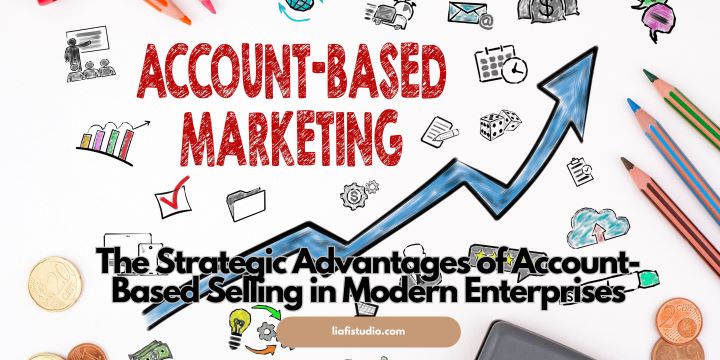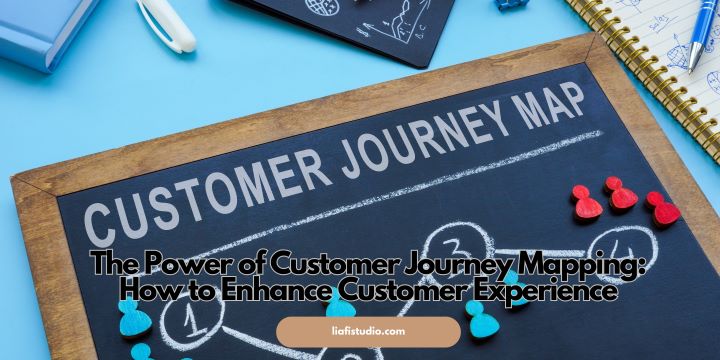Key Takeaways:
- Account-based selling focuses on customer’s specific needs, aligning with their goals.
- It encapsulates the coordinated efforts of sales and marketing teams.
- Leveraging data and technology is central to account-based strategies.
- Personalization and long-term relationships are vital components of success.
Account-based selling offers strategic advantages in modern enterprises. It focuses resources on high-value accounts, enhances personalization, and fosters stronger customer relationships. This targeted approach ensures efficient resource use, maximizes sales effectiveness, and drives sustainable growth in today’s competitive market environment.
The Fundamentals of Account-Based Selling
For businesses looking to improve their sales approaches, a pivot to account based selling offers promising rewards. This strategy represents an intentional shift from mass marketing tactics to ones meticulously customized for high-value prospects or existing accounts, which are selected based on projected revenue potential and strategic importance.
Implementing this strategy involves a granular view of a client’s industry, business processes, and specific challenges, allowing a company to present its offerings in a way that directly addresses these areas. Such targeted campaigns are informed by insightful customer profiles—built on a foundation of detailed research—which guide the development of highly personalized engagement strategies that significantly increase the likelihood of conversions.
Pivoting to a Customer-Centric Approach
Central to the ethos of account-based selling is a customer-centric philosophy. This approach conceives sales and marketing as holistic processes that nurture a lead with consistent, relevant, and personalized messaging over time. Businesses adopting account-based selling must cultivate a deep-rooted desire not simply to sell but to solve specific customer challenges and bolster the customer’s business success.
The strategy dovetails seamlessly with customer relationship management (CRM) practices, emphasizing the significance of understanding and meeting the high expectations of today’s well-informed clients. As a testament to the importance of this strategy, customer-centric companies are likely to see a considerable advantage over their competitors. This advantage becomes even more pronounced in highly competitive markets.
Convergence of Sales and Marketing Efforts
In account-based selling, the alliance between sales and marketing teams becomes a powerful leverage point for businesses. This strategic union, often called ‘marketing,’ enables the sharing of knowledge and resources that ensures both teams are working towards a standard set of goals, harmonizing their tactics and messaging for peak effect. This collaboration creates a seamless narrative for the customer, as the targeted account receives a coherent, tailored message from first touch to final sale—increasing engagement and trust.
This convergence is highlighted as a necessity in business, as documented by thought leaders, which remarks on the resulting benefits, such as improved customer retention rates and boosted return on investment (ROI) for marketing campaigns.
Leveraging Data for Strategic Decision-Making
Data analytics has become the backbone of informed decision-making within account-based selling frameworks. It allows for the distillation of raw data into sharp insights into customer behavior patterns, preferences, and future needs. By crunching numbers and decoding trends, businesses can anticipate market movements and customer expectations with greater accuracy, tailoring their sales strategies with scientific precision and resulting in a higher likelihood of sustained customer engagement and conversion.
Moreover, data offers empirical evidence to refine and hone account-based strategies continuously. Each customer interaction provides information that can be used to evaluate the effectiveness of different approaches, further driving the refinement of strategy and tactics over time.
Enhancing Customer Engagement with Personalization
The opportunity for personalization is significantly magnified in the account-based selling model. Instead of general broadcast messages, content can be customized to reflect each account’s identified aspirations and pain points, resonating deeper and fostering enhanced customer engagement. The strategy underlines personalization as a dynamic, ongoing process that adapts to the shifting landscapes of customer needs and preferences, effectively differentiating a company in a saturated market.
This personalized approach improves immediate sales metrics and enhances the customer journey, laying the groundwork for repeat business and brand advocacy. This focus on creating a customized customer experience underpins the long-term success of account-based engagement initiatives, allowing enterprises to cultivate a loyal customer base.
Building Long-Term Relationships Through Trust
Trust is not a commodity that can be bought but a valuable asset to be earned—especially in account-based selling. Sales strategies built upon trust are more likely to foster durable, beneficial relationships that extend beyond the life of a single transaction. The account-based model thrives on authentic interactions, emphasizing a commitment to providing genuine value in every exchange.
To this end, businesses must adopt a transparent approach in their engagements, maintain open communication channels, and ensure that promises made are kept. By doing so, they solidify their positioning as reliable partners rather than mere vendors, which leads to increased customer loyalty and positive word-of-mouth—an invaluable marketing asset in its own right.
Measuring Success in Account-Based Frameworks
The accurate measure of an account-based selling strategy’s success is more than just the number of deals closed, the depth and quality of the relationships built, and the value delivered over time. Success metrics are tailored to the customer’s goals, considering engagement levels, deal size, conversion rates, and customer lifetime value (CLV).
Through continual analysis of these indicators, businesses gain insight into the effectiveness of their account-based endeavors. This analytical feedback loop enables the fine-tuning of approaches and ensures that the company’s efforts align with the evolving needs of its target accounts.
Adopting Technological Solutions
Technology deployment in support of account-based selling initiatives cannot be overstated. CRM systems, for instance, serve as the informational nucleus, ensuring team members are informed and aligned on each account’s status. Marketing automation platforms and AI-driven analytics tools further assist in optimizing the sales process, providing timing and targeting precision, and delivering actionable intelligence to the sales force for use in the front of customer engagement.
These tools have become increasingly sophisticated, capable of pinpointing which accounts are ready for engagement, which require nurturing, and how best to allocate resources for maximum efficiency and return on investment.
Overcoming Challenges in Account-Based Selling
The challenges inherent in adopting an account-based selling approach are multifaceted. They can range from internal resistance to change to navigating resource allocation accordingly and ensuring the requisite skills and knowledge are pervasive throughout the team. These hurdles call for adaptive leadership to drive cultural change, underpinned by a thorough understanding of the strategy’s potential and limitations.
Moreover, success hinges on recognizing that account-based selling is not a static formula but a fluid, evolving methodology that must be tweaked and recalibrated in response to changing market dynamics and customer feedback.
Future Trends in Account-Based Strategies
Technological innovations and shifts in buyer behavior continuously reshape the horizon of account-based selling. Emerging trends point towards an increasing reliance on AI and machine learning to refine targeting strategies, the growing importance of integrating sales and marketing technologies, and a greater emphasis on achieving a 360-degree view of the customer.
To stay ahead, businesses must keep a pulse on these shifting sands. Resources are invaluable for keeping abreast of these changes, ensuring businesses remain at the forefront of account-based selling methodology and can adapt their strategies to maintain a competitive edge. The focus on customer data privacy also grows in importance, necessitating transparency and integrity in all customer data handling practices.




